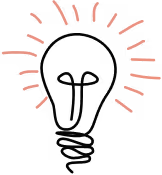Highland’s President, Jon Berbaum, and I were catching up about life when he slipped this magical thought into our conversation.
I don’t care if I’m running a digital agency or innovation consultancy, or whatever else; I only care about building a community of people that care about one another and others that need help.
This is it, I thought, this must be the reason I joined Highland. I didn’t know it then; when I was interviewing, I simply felt an unexplainable sense of care, of genuine humanity, of an honest connection.
In a crowding industry landscape of ‘culture claimers’—those that say the words but don’t live the meaning—Highland has astonished me. In the six months I’ve been here, I’ve experienced the unbelievable combination of mission-driven work, emotionally intelligent culture, expansive growth, and supportive community. Even as I joined the team virtually during the pandemic, tenderness and care managed to reach me in this remote reality. While Highland’s values are modeled by its top leaders, they are truly amplified by each team member, making the experience effectively inescapable. I trust that I will be heard, I acknowledge my concerns freely, I’m encouraged to take time off, and get zero notifications over the weekend.

I realized later that Jon’s confidence likely comes from a place of knowing that acknowledging criticism is only the beginning; it is step one of taking responsibility for and acting on feedback.
Across multiple instances at Highland, I witnessed feedback being given, understood, considered, and acted on. Even a thorny issue—like overwork as we adapt to a remote work environment—was raised, with vulnerability on display both on the raising and receiving ends of the feedback. Adjusting to new processes, formats, and rhythms in a remote setting, overworking—working at an unsustainable pace—had quickly crept up as a new reality for many. Having recently joined the team, I was in a unique position to facilitate the conversation, belonging to neither group fully.
Confronting overwork in a remote environment
So how might a team of Design Researchers and Interaction Designers have a hands-on discussion around a prickly, ambiguous, and systemic topic like overwork? By nerding-out among digital post-its and whiteboard, of course.
Applying research methods as we would to a client project, activities were designed to uncover insights around unmet needs. By mapping the journey to overwork—or heroism, as we call it at Highland—the team was able to discern critical moments in the process that needed better communication, structure, and emotional safety.
For example, halfway between misaligned expectations and the realization of being in a position of overwork, team members go through a, “Should I actually be able to finish this?!” phase—beginning to doubt their own level of skill. At this point, instead of succumbing to heroism, calling a team huddle, dialoguing with the team, clarifying expectations with the project lead, and preserving a safe space to say no is crucial. These are the very things we find harder to do in a remote environment. We can’t make eye contact without calling a meeting, get a sense of a teammate’s state of mind from the corner of our eye, or quickly talk through things before they become a thing.
The team investigated earlier stages of heroism to better understand root causes, and uncovered deeper opportunities for change and support. As we wondered why expectations were misaligned in the first place, we unearthed a possible lack of clarity on the definition of done, a misunderstanding of the task itself, or perceived hierarchical constraints. The further back we went, the more clarity we gained on moments in the journey that needed attention and care. Gaps existed in both team-wide process and structure, as well as individual behaviors.
Addressing needs and next steps
Pivoting to ideation mode, we brainstormed ways to address unique needs at every stage of the process. Voting on and clustering these ideas, we arrived at directions of change that we could align around. Leaning into next steps, we organized these clusters under two buckets: those addressable at an individual level, and those requiring team-wide support. Together, the team had gained clarity on unique needs across the journey and outlined distinct steps forward.
This point seemed like a natural end to the conversation, and I expected a transfer of responsibility to Highland’s leadership. But in another moment of tenderness with the team, I perceived passion around ownership and change, as people signed up to collaborate on implementation. Ideas that needed team-wide support now had champions, and energy around progress. As for ideas addressable at an individual level: we decided to review them quarterly as a team, sharing stories of adherence, deviation, or change.
Traveling from unrest, gloom, or uncertainty toward optimism can be a powerful motivator. As a team, partnering on this journey felt like real progress—a moment of getting unstuck. And it all began with the courage to voice a concern, the humility to accept criticism, and the posture of action. At Highland, we pride ourselves on a sustainable pace of work, but that doesn’t mean we don’t run into roadblocks, doubt, or confusion, especially as we navigate a once-in-a-lifetime pandemic.
As a healthy culture, we understand that changing circumstances bring new challenges, and these must be accepted, voiced, and greeted—with curiosity. In the end, it’s not about avoiding difficulty; it’s about building strength and resilience as a culture. And this strength and resilience shows in every conversation with Highlanders—it certainly did during my interviews with the team. Now I understand why.



